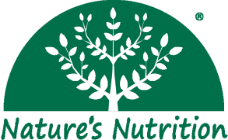Bees are some of the most hardworking and vital creatures in our ecosystem. Each year on 20 May, World Bee Day reminds us of their incredible contributions—not just to our environment, but also to our daily lives. In Singapore, where urbanisation often overshadows nature, it’s important to take a moment and reflect on how even the smallest creatures like bees play a massive role in our health, food supply and biodiversity.
And what better way to honour them than with a closer look at one of their most precious gifts: Manuka honey.
The essential role of bees in food and nature
Bees are responsible for pollinating around 75% of the world’s flowering plants, including over a third of the food crops we eat. This means fruits like apples, blueberries and melons, as well as vegetables and nuts, all rely on bees for growth and reproduction. In Singapore, while we import most of our fresh produce, these pollination services remain critical in the bigger global agricultural picture.
Local green spaces such as community gardens and urban farms also benefit from healthy bee populations. These spaces may be small compared to large farms overseas, but they contribute to food resilience, education and biodiversity right here at home. Bees help ensure these mini ecosystems thrive.
Manuka honey: a sweet celebration of bee power
Among the many types of honey available, Manuka honey stands out not just for its taste but also for its unique health properties. Sourced from bees that pollinate the Manuka bush in New Zealand, it contains a powerful compound known as methylglyoxal (MGO), which gives the honey its antibacterial and anti-inflammatory qualities.
What makes it even more special is the UMF (Unique Manuka Factor) rating—a quality mark that indicates the potency and purity of the honey. When choosing UMF Manuka honey, it’s important to ensure that the honey is certified and tested for authenticity. That way, you can be sure you’re getting real Manuka honey, packed with its natural benefits and free from additives or fake blends.
Here in Singapore, where consumers are increasingly focused on health and wellness, real Manuka honey has grown in popularity. It’s often used to soothe sore throats, support gut health and even boost skin health when used topically.
Why bees are under threat
Despite their importance, bees face numerous threats that are pushing their numbers into decline. Habitat loss due to rapid urban development, climate change, the widespread use of pesticides and disease are all major contributors. In Singapore, although the country is small, urban planning has to strike a balance between development and the preservation of green spaces.
Fortunately, there has been a growing awareness of the need to protect our pollinators. Nature parks and ecological corridors help provide safe environments for bees, while educational campaigns in schools and communities are helping to reshape public attitudes towards these often misunderstood insects.
What we can do in Singapore to support bees
Even in a bustling city, there are simple steps anyone can take to support bee health:
- Plant bee-friendly flowers and herbs: Lemongrass, basil and mint are just a few examples of plants that do well in our tropical climate and attract pollinators.
- Avoid chemical pesticides: Opt for natural alternatives when gardening to help reduce harm to beneficial insects.
- Support sustainable brands: Choosing products like certified UMF Manuka honey encourages ethical and environmentally-friendly beekeeping practices.
- Educate others: Talking about bees with friends, children or neighbours helps increase awareness of their role and the need to protect them.
Every small action adds up. Whether it’s purchasing ethically sourced honey, planting pollinator-friendly plants or simply learning more about bee conservation, your choices have an impact.
World Bee Day is more than just a celebration
World Bee Day is not just a time to appreciate the delicious honey in our pantries. It’s a call to action, reminding us that without bees, our food systems and ecosystems would be in serious trouble. In Singapore, a country that relies heavily on imports and is working hard to become more self-sufficient through initiatives like 30 by 30, protecting pollinators plays a role in our national sustainability goals.
Choosing to support bee-friendly practices is one way to contribute to that future. Whether you’re adding a jar of real Manuka honey to your kitchen for health and wellness or starting your own bee-friendly herb garden, every action shows appreciation for these remarkable insects.
Make Manuka honey part of your everyday wellness
At Nature’s Nutrition, we believe in promoting sustainable and natural health solutions that align with the needs of both people and the planet. Celebrating World Bee Day with a spoonful of Manuka honey is a small yet meaningful act—one that honours the vital role bees play while supporting your own well-being. Explore our range of premium Manuka honey and discover how nature’s golden gift can benefit your lifestyle.

